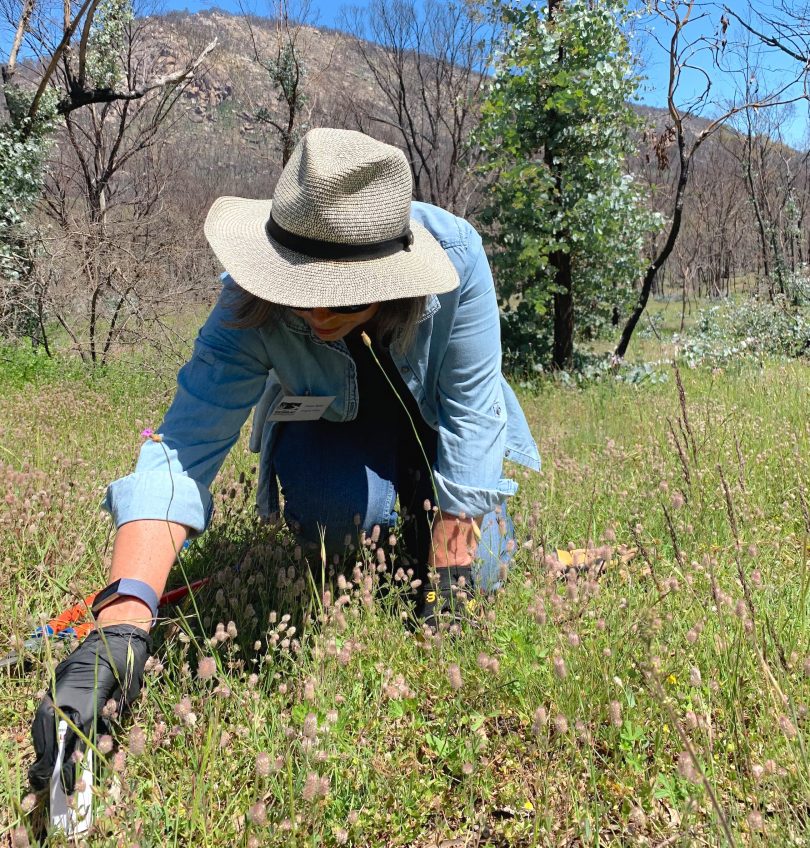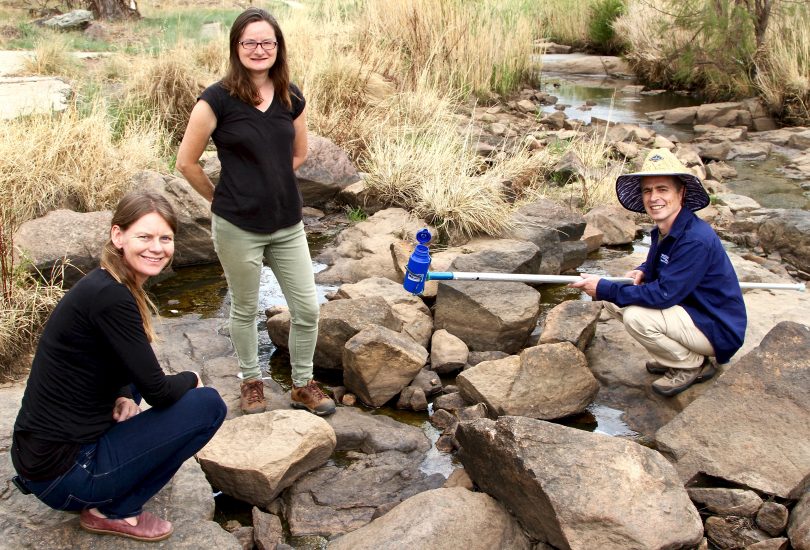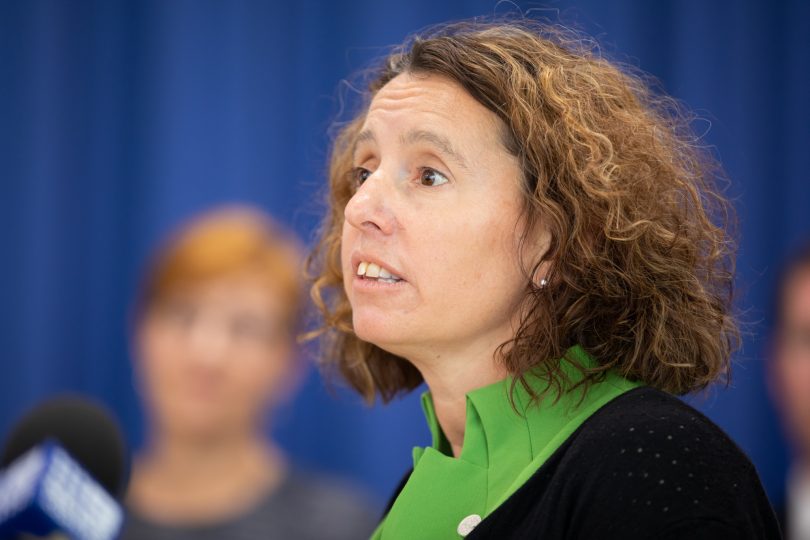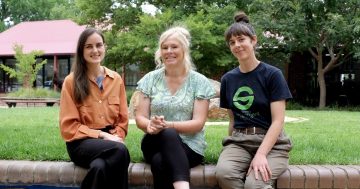
Landcare ACT volunteers have worked extensively in the Namadgi National Park after the bushfires. Photo: Landcare ACT.
Landcare ACT has welcomed the announcement that the ACT Government is committed to providing ongoing funding for environmental volunteers across the ACT over the next four years.
Minister for the Environment Rebecca Vassarotti broke the news of the secured funding, which was an election commitment of the Greens, in a recent speech to the Assembly.
While the exact dollar amount cannot yet be confirmed, it’s hoped the funding will allow local community groups to continue caring for the environment, particularly in bushfire affected zones such as Namadgi National Park.
In response to the news, Landcare ACT CEO Karissa Preuss said funding certainty had been something the three catchment groups in the Territory had been calling for for years.
According to Ms Preuss, Landcare volunteers contribute more than $2 million in in-kind hours to maintain and regenerate urban areas, waterways and our rural areas each year.
Until this announcement, the three groups, for whom Landcare ACT acts as a peak body, had been given funding on a year-to-year basis, meaning much of their time had been spent applying for government funding.
Southern ACT Catchment Group Executive Officer Martine Franco said the funding would allow for long-term planning and projects that can run over multiple years.
“The main benefit is really security and the ability to continue building relationships with community groups.
“It means our volunteers, who work with the small groups who are our members, can keep doing what they do and we can continue to support them,” she said.
Longevity in funding, she explains, allows them to be responsive to community concerns surrounding the natural environment.

Karissa Preuss, Dr Caroline Wenger and Bruno Ferronato hard at work checking water. Photo: Michael Weaver.
Mt Taylor Parkcare Group Co-Convenor Kathy Eyles explained that the group conducts a number of activities to look after the biodiversity of the area, including weeding, controlling erosion and closing mountain bike trails.
They also conduct walks so they can share the stories of the mountain with people who live nearby.
She says the newly announced funding will allow them to begin projects they otherwise thought would be out of reach.
“For example, if we got funding for a long-term restoration project, it would mean we could restore a larger area of habitat for our pink tailed worm lizard,” Dr Eyles explained.

Rebecca Vassarotti MLA announced the ongoing funding for Landcare Groups. Photo: Michelle Kroll.
The Mt Taylor Parkcare Group sits under the Landcare Southern ACT Catchment Group which Dr Eyles says is like the glue which holds all of the smaller groups together and helps with access to funding and funding applications.
In operation since 2003, the Southern ACT Catchment Group currently works with 26 member groups which all conduct weeding work in the reserves of Canberra nature park.
These groups also undertake planting, erosion control, environmental monitoring, habitat restoration and threatened species protection.
A recent study from KPMG indicates that Landcare volunteers around the country save up to $57 million in healthcare costs due to the boost their engagement provides to personal physical and mental wellbeing.
The tangible economic impact comes through avoided healthcare costs and improved productivity.
The $57 million figure was obtained by working on an assumption that the 140,000 Landcare volunteers save an average of $403 each per year.
For many environmental volunteers, the report only confirmed what they already knew to be true – that they benefit from an increase to their overall wellbeing as a result of their participation in environmental volunteering.














